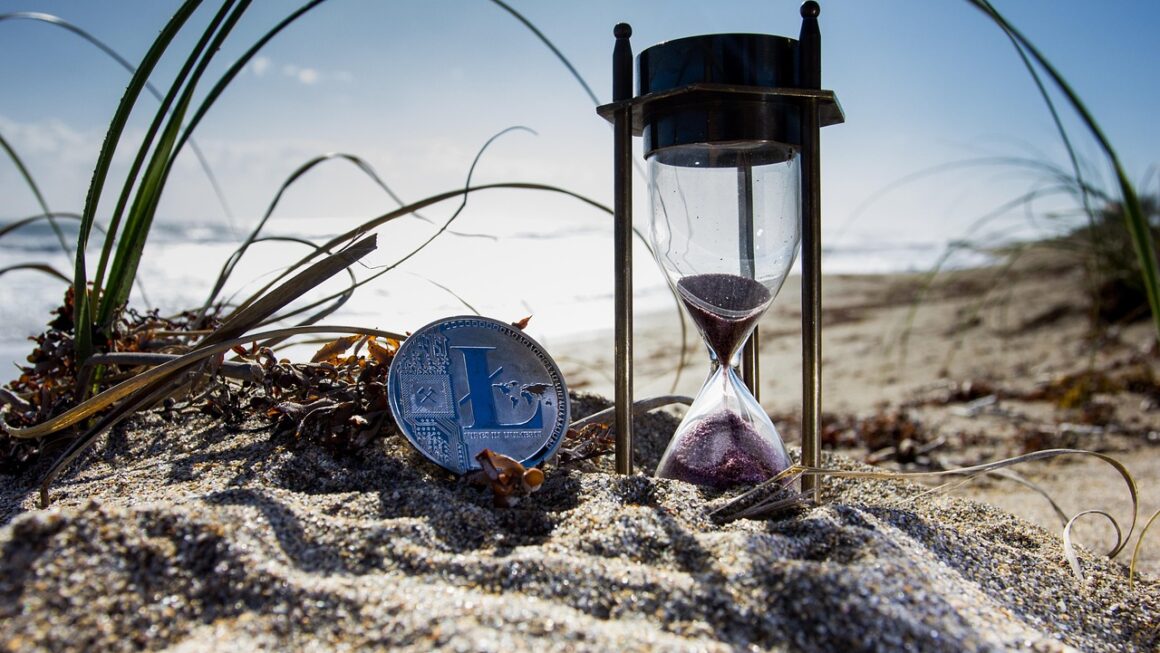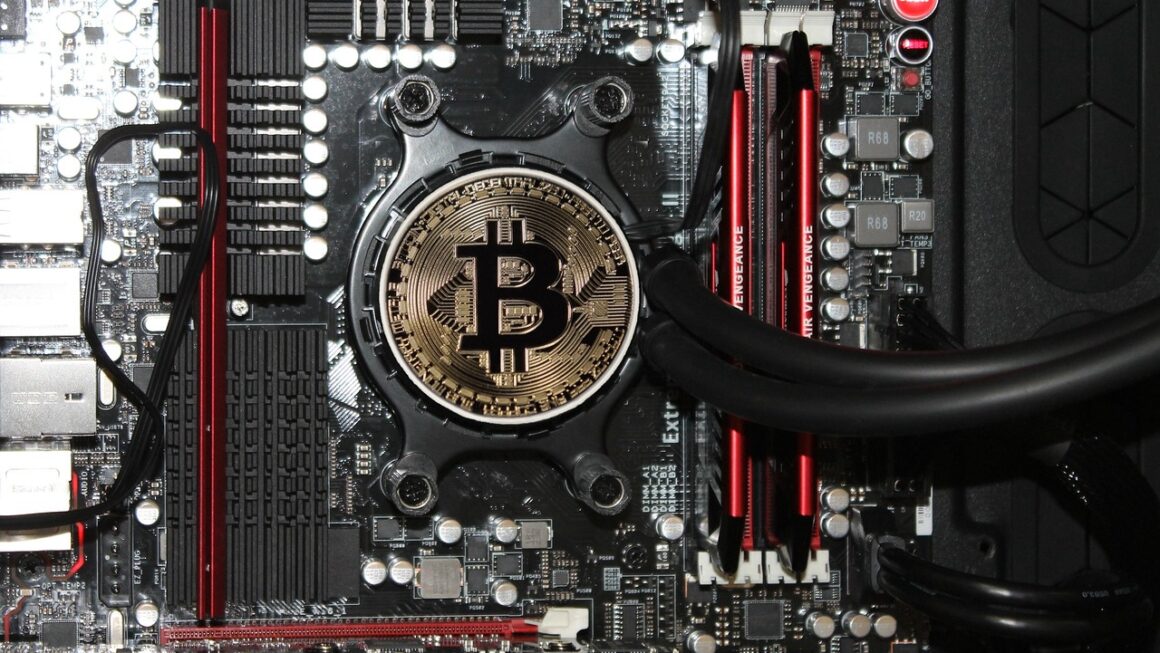Zero-Knowledge (ZK) Rollups have emerged as a leading Layer-2 scaling solution for Ethereum and other blockchains, offering the potential to significantly increase transaction throughput while maintaining the security and decentralization of the underlying Layer-1 network. This technology is gaining traction as developers and users alike seek faster and cheaper transactions without compromising on security. Let’s dive deep into the world of ZK Rollups and explore their benefits, workings, and future potential.
Understanding Layer-2 Scaling Solutions
The Need for Scaling
Ethereum, the second-largest cryptocurrency by market capitalization, faces a significant challenge: scalability. Its main network can only process a limited number of transactions per second (TPS), leading to high transaction fees (gas fees) and network congestion. This limits Ethereum’s potential for mass adoption and usability.
Layer-1 vs. Layer-2 Scaling
There are two main approaches to scaling blockchain networks:
- Layer-1 Scaling: This involves modifying the underlying blockchain protocol itself. Examples include increasing block size or implementing sharding.
- Layer-2 Scaling: This involves building protocols on top of the existing Layer-1 blockchain. Layer-2 solutions process transactions off-chain and then bundle them together before submitting them to the Layer-1 chain. ZK Rollups fall into this category.
Layer-2 solutions like ZK Rollups offer a compelling alternative to Layer-1 changes because they are less disruptive and can be implemented more quickly.
What are ZK Rollups?
Core Principles
ZK Rollups are a type of Layer-2 scaling solution that bundles multiple transactions into a single batch and then submits that batch to the main Ethereum chain. What makes ZK Rollups unique is their use of zero-knowledge proofs to verify the validity of these transactions.
- Zero-Knowledge Proofs: These cryptographic proofs allow one party (the prover) to convince another party (the verifier) that a statement is true without revealing any information about the statement itself. In the context of ZK Rollups, the prover proves that the bundled transactions are valid without revealing the details of those transactions to the Ethereum main chain.
- Off-Chain Computation: Transactions are executed off-chain, significantly reducing the computational load on the Ethereum main chain.
- On-Chain Data Availability (in most implementations): While the computation occurs off-chain, transaction data (or a compressed version) is still posted to the Ethereum blockchain. This ensures that anyone can reconstruct the state of the rollup, maintaining data availability and security.
How ZK Rollups Work: A Step-by-Step Guide
- Transaction Submission: Users submit transactions to the ZK Rollup.
- Batching: The ZK Rollup operator (or sequencer) batches multiple transactions together.
- State Update & Proof Generation: The operator executes the transactions off-chain and generates a zero-knowledge proof (typically a zk-SNARK or zk-STARK) that verifies the validity of the state transition caused by these transactions.
- Proof Verification & State Commitment: The operator submits the proof and a state commitment (a cryptographic hash representing the new state of the rollup) to the Ethereum main chain.
- Verification on Main Chain: A smart contract on the Ethereum main chain verifies the proof. If the proof is valid, the state commitment is updated, reflecting the new state of the rollup.
Example: Imagine a ZK Rollup processing 1,000 transactions. Instead of each transaction being individually verified on the Ethereum main chain, only a single proof needs to be verified, significantly reducing gas costs.
Benefits of ZK Rollups
Enhanced Scalability
ZK Rollups can significantly increase transaction throughput compared to the Ethereum main chain. By processing transactions off-chain and verifying them with zero-knowledge proofs, they can achieve thousands of transactions per second (TPS).
- Improved TPS: ZK Rollups can process transactions much faster than the Ethereum main chain.
- Reduced Congestion: By offloading transaction processing, ZK Rollups reduce network congestion on the main chain.
Lower Transaction Fees
The efficiency of ZK Rollups translates directly into lower transaction fees for users. Because the cost of verifying a single proof is much lower than verifying multiple individual transactions, users save on gas fees.
- Reduced Gas Costs: Users pay significantly lower gas fees compared to transacting directly on Ethereum.
- Increased Affordability: Lower fees make blockchain applications more accessible to a wider range of users.
Strong Security
ZK Rollups inherit the security of the underlying Ethereum main chain. The validity of transactions is cryptographically guaranteed by the zero-knowledge proofs, making them highly secure.
- Inherited Security: ZK Rollups benefit from the security of the Ethereum main chain.
- Cryptographic Guarantees: Zero-knowledge proofs provide strong assurances about the validity of transactions.
Faster Finality
ZK Rollups offer faster transaction finality compared to some other Layer-2 solutions. Once the zero-knowledge proof is verified on the Ethereum main chain, the transaction is considered finalized.
- Reduced Confirmation Times: Users experience faster confirmation times compared to transacting directly on Ethereum.
- Improved User Experience: Faster finality leads to a more responsive and seamless user experience.
Challenges and Considerations
Computational Complexity
Generating zero-knowledge proofs can be computationally intensive, requiring significant processing power. While this is primarily a burden on the ZK Rollup operator, it can impact the overall cost of running the system.
- High Computational Requirements: Generating ZK proofs demands considerable computational resources.
- Potential Impact on Operational Costs: The computational complexity can increase the operational costs for ZK Rollup providers.
Trusted Setup
Some ZK Rollup implementations, particularly those using zk-SNARKs, require a trusted setup ceremony. This ceremony generates the cryptographic parameters needed for the zero-knowledge proofs. A compromised trusted setup could potentially allow the creation of fraudulent proofs.
- Potential Vulnerability: A compromised trusted setup could weaken the security of the ZK Rollup.
- Alternatives Exist: zk-STARKs are a type of zero-knowledge proof that does not require a trusted setup.
Data Availability Considerations
While many ZK Rollups provide on-chain data availability by posting transaction data or a compressed version to the Ethereum blockchain, some alternative designs explore validity rollups without on-chain data availability, or Volitions (which allow users to choose between on-chain and off-chain data availability). The security assumptions change depending on the data availability solution chosen.
- Data availability dictates who can reconstruct the state of the rollup.
- Different data availability solutions offer varying levels of security and cost.
Real-World Examples and Use Cases
Payment Applications
ZK Rollups are well-suited for payment applications where high transaction throughput and low fees are crucial. They can enable faster and cheaper transactions for everyday payments.
- Example: A ZK Rollup could be used to process micro-transactions, such as tips or micropayments for online content, which would be impractical on the Ethereum main chain due to high fees.
Decentralized Exchanges (DEXs)
ZK Rollups can improve the performance of decentralized exchanges by enabling faster order execution and lower trading fees.
- Example: zkSync Era allows developers to deploy existing Solidity smart contracts with minimal changes, meaning existing DEXes can easily integrate to provide better UX.
Gaming
The increased scalability and lower fees offered by ZK Rollups can make blockchain gaming more viable. They can enable complex in-game transactions and interactions without incurring high costs.
- Example: ZK Rollups can be used to manage in-game assets, such as virtual items or currency, allowing players to trade and use them seamlessly.
Conclusion
ZK Rollups represent a significant advancement in Layer-2 scaling solutions for Ethereum and other blockchains. By leveraging zero-knowledge proofs and off-chain computation, they offer the potential to achieve significant improvements in scalability, transaction fees, and security. While challenges remain, the ongoing development and adoption of ZK Rollups suggest a promising future for blockchain technology, enabling a more scalable, affordable, and accessible decentralized world. As the technology matures, we can expect to see even more innovative applications of ZK Rollups across various industries.
Read our previous article: Beyond Disruption: Tech Startup Sanity And Sustainability




